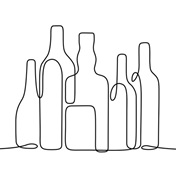The debate over the dangers of alcoholic energy drinks, popular among the young because they are inexpensive and carry the added punch of caffeine, has intensified after some students became so intoxicated they wound up in the hospital.
Sold under catchy names, these fruit-flavoured beverages come in oversized containers reminiscent of nonalcoholic sports drinks and sodas, and critics warn that this is no accident. The drinks, they noted, are being marketed to young drinkers as a safe and affordable way to drink to excess.
One brand, a fruit-flavoured malt beverage, has caused special concern since it was consumed by college students before they ended up in the ER, some with high levels of alcohol poisoning.
"The soft drink or energy drink imagery of these drinks is just dangerous window dressing," contends Dr Eric A. Weiss, an emergency medicine expert at Stanford University's School of Medicine in Palo Alto, Calif. "It hides the fact that you're consuming significant amounts of alcohol. And that is potentially hazardous, because it's not only harmful to one's health, but impairs a person's coordination and judgment."
Caffeinated drinks go down faster
In fact, these caffeinated alcoholic beverages can contain anywhere from 6% to 12% alcohol. That is the equivalent of roughly two to four beers, respectively.
"And what I worry about as a trauma physician is that someone will drink one can of this stuff and not realise how much alcohol they've consumed," noted Weiss. "Whereas, if they had four beers they would presumably be more mindful of the amount of alcohol they had consumed and not go and get behind the wheel of a car, for example."
And anyone who thinks that the caffeine found in such drinks can protect them from the negative effects of intoxication will be sorely disappointed, Weiss added.
"Old movies used to show people getting their drunk friends to consume coffee before they get into their cars to drive themselves home, but there's just no evidence to suggest that it works like that," he said.
"Caffeine can help keep you awake, but it will not mitigate the effect of alcohol. It will not lessen the loss of coordination, the poor judgments, the nausea or the sickness that comes with excessive drinking. Someone who gets behind the wheel of a car and starts swerving as they drive will not find that problem mitigated by caffeine."
Toxic danger: stimulants and depressants
To date, laws are in place to specifically regulate or ban the sale of caffeinated alcoholic beverages, which do currently carry labels indicating alcohol content. However, the safety of such drinks is currently under review by the US Food and Drug Administration, which has not sanctioned the addition of caffeine to an alcoholic beverage.
Dr Richard Zane, vice chair of emergency medicine at Brigham and Women's Hospital in Boston, views the advent of alcoholic energy drinks as "troubling on many levels".
"It's the whole package together that is dangerous," he said. "Because of the way it's being specifically marketed in colorful, pretty cans with funky names that are clearly designed to appeal to young people, also because of the false perception that the caffeine they contain will keep drinkers alert, and is somehow protective against becoming extremely intoxicated. And then there's the actual toxicological danger of combining a stimulant with depressants.
"Of course, combining alcohol and caffeine is not a new thing," acknowledged Zane, who is also an associate professor in the department of emergency medicine at Harvard Medical School in Boston.
"But the way this is being marketed is. These drinks promote and encourage drinking lots and lots of alcohol."
Caffeine will make someone agitated
"And the caffeine," he stressed, "has no protective quality against that. These drinks convey a false sense that when combined with a high alcohol content caffeine will promote alertness. But as a stimulant, in high quantities caffeine will make a person feel agitated. And in really high quantities it will make a person feel awful and tremulous. But caffeine will not necessarily make a drinker more alert."
"So this is really a way to get young people to drink more under false pretenses," Zane flatly stated. "And that's a big problem."
(Copyright © 2010 HealthDay. All rights reserved.)
Red Bull ups stroke risk
Energy drink, alcohol is risky




 Publications
Publications
 Partners
Partners











